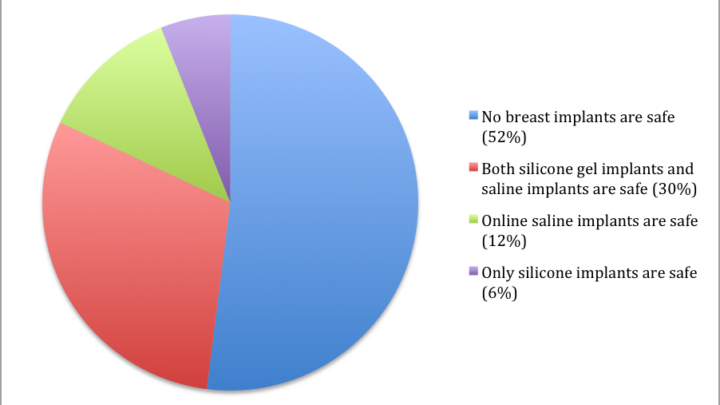
Can a 94% reduction in lipoprotein(a) (Lp[a])1 change the game in cardiovascular risk management, or is it just another short-lived breakthrough? That’s the question facing physicians as Lepodisiran, a novel RNA-based therapy, gains traction in early studies.
Designed to lower Lp(a), a known and stubborn risk factor for cardiovascular disease,1 Lepodisiran has sparked both excitement and hesitation among cholesterol doctors and clinicians.2 According to a recent Sermo poll, 48% of physicians believe the Lp(a) reduction is extremely significant.3
However, behind the optimism lie pressing questions. 38% of physicians on Sermo have concerns around its long-term safety, 23% ponder its real-world efficacy and 25% worry about implications for patient access,3 creating questions around how this drug fits into the broader landscape of cardiovascular care.
So, how are physicians really reacting? What concerns might slow its clinical adoption, and what evidence will tip the balance from curiosity to confidence? This article uses poll data and global physician insights to explore the conversation unfolding on Sermo.
What does a 94% Lp(a) reduction mean for physicians?
While Lepodisiran’s 94% reduction in Lp(a) is scientifically impressive,1 the clinical community remains split on its significance. Revealing not just differing interpretations of the data, but differing thresholds for clinical confidence.
In a recent Sermo poll, many saw it as a potentially transformative development, especially for high-risk populations. “A 94% reduction in lipoprotein(a) is likely to be extremely significant,2” wrote a Cardiothoracic surgery resident. “It represents a major advancement in cardiovascular risk reduction.2” Similarly, another Cardiologist called it “a gamechanger for patients at risk for premature ASCVD because of Lp(a).2”
But 36% of physicians were more cautiously optimistic, rating the impact as moderately significant.3 Lp(a) “Could be very significant in preventing cardiovascular disease… especially in people with elevated levels,2” noted a GP, while others stressed its potential if safety is confirmed.2 The remaining 16% of respondents expressed skepticism.3
This range of responses highlights that physicians are intrigued by the mechanism behind Lp(a), but for them to get truly on board hinges on real-world, outcome-driven proof.
Clinical excitement meets safety skepticism
This tension between scientific promise and clinical caution is echoed across dozens of physician comments. Many are intrigued by this heart and cholesterol news, but hesitant to embrace Lepodisiran without stronger data. An OB/GYN put it plainly: “Long-term safety data with a new category of treatment is really mandatory.2”
Indeed, the drug’s durability may be both a strength and a risk. As a Physiatry specialist noted, “Lepodisiran may suppress Lp(a) for months with a single dose — which is convenient, but also risky if side effects emerge. If an adverse effect occurs, there’s no way to quickly ‘turn off’ the therapy.2”
Sermo poll data reinforces these concerns:
- 38% of physicians cited long-term safety and unknown side effects as their top concern.
- Only 20% feel very confident in Lepodisiran’s long-term safety.3
These concerns are especially pronounced given Lepodisiran’s novel RNA-based mechanism. “As with any novel RNA-based therapy, cautious optimism is warranted,2” wrote a GP. Others, like one Pathologist, noted cultural hesitancy: “People may be weary of RNA-based therapies given their novelty.2”
This layered skepticism suggests that for many physicians, scientific novelty alone is not enough of a reason to back the treatment. Trust must be earned through transparency and outcomes that go beyond the lab.
What are the potential barriers to using Lepodisiran?
While the clinical promise of Lepodisiran is generating interest, physicians on Sermo have raised multiple concerns that could hinder its widespread adoption. From safety to access, the concerns reflect both scientific and systemic caution.
Long-term safety and unknown side effects
Safety stands as the most cited, with 38% of physicians selecting it as their top concern.3
The therapy’s long-acting nature, while convenient, raises red flags if adverse effects appear. “I would like to know side effects and risks,2” noted one Orthopedic Surgeon. An Emergency Medicine specialist echoed the need for long-term data: “It would be interesting to know the side effects and long term efficacy.2”
Physicians are wary of committing to a drug that can’t be quickly reversed if adverse effects emerge, because durability without reversibility feels risky in practice.
Cost and patient access
One in four physicians on Sermo worry about affordability and real-world access.3 “The cost to patient is one concern,2” said an Internal Medicine specialist. Even if Lepodisiran delivers on efficacy, physicians know price and payer limitations may ultimately decide whether patients can benefit from it.
Limited real-world data
Beyond trial results, 23% of physicians flagged the need for lived clinical experience.3 “I want to see real-world data with a few years of expertise before I would feel comfortable,2” said one family medicine clinician, while a Pediatrician put it plainly: “Real world data would be nice.2”
Physicians want to see how Lepodisiran performs outside controlled trials, with diverse populations and unpredictable patient behaviours.
Patient adherence and monitoring
A smaller but notable concern relates to how patients will respond to and manage this treatment. One GP highlighted a crucial link: “Achieving a good cost-benefit ratio… could significantly improve patient adherence.2”
Long-term success may hinge not just on clinical outcomes, but on how well the treatment fits into patients’ financial and lifestyle realities.
Regulatory or payer barriers
Administrative hurdles also factor in for 5% of respondents.3 “Clinical data should support the introduction of any intervention. Then the cost/benefit analysis. Then the fight to get it paid for by insurers (in the US)2” remarked an Anaesthesiologist, reminding us that even approved drugs face obstacles before reaching patient hands. Physicians recognise that new therapies must clear not only medical standards but also complex institutional and reimbursement systems to be viable.
Other concerns
Some flagged deeper societal and philosophical issues.
One Pathologist questioned whether Lp(a) reduction addresses root causes: “It’s reminiscent of treating the symptoms rather than the root cause… poor diet and inadequate exercise.2” Others, like one GP, noted the role of local protocols: “It does not depend exclusively on a medical decision… but on the existence of a hospital protocol.2”
A small number of physicians are thinking beyond the treatment room itself to challenge whether Lepodisiran fits within holistic or institutional models of care.
What will it take to increase confidence in Lepodisiran?
So, what would shift clinical attitudes from interest to implementation?
According to Sermo’s poll:
- 36% of physicians said they want long-term cardiovascular outcomes data
- 34% want real-world safety data
- 13% seek comparative effectiveness with existing therapies3
Multiple Sermo members echoed this need for broader, more mature data.
A GP asked: “What unexpected immune or off-target effects might surface with chronic RNA therapy? How will Lepodisiran integrate alongside statins and PCSK9 inhibitors? At what threshold of evidence would you feel comfortable prescribing it?2”, expressing the sheer amount of unknowns that can make some physicians concerned about adopting this treatment too early.
Even among those intrigued by Lepodisiran’s mechanism, there’s a call for patience and proof. Another GP wrote: “Lepodisiran shows great promise with its impressive Lp(a) reduction. However, long-term data on safety and efficacy are essential before it can earn a solid place in clinical practice.2”
Time and time again, Sermo member opinions suggest that in order for Lp(a) to be trusted, it needs to demonstrate long-term efficacy.
Will physicians prescribe it?
Right now, only a quarter of physicians on Sermo say they’d be very likely to lead on prescribing Lepodisiran if approved. Another 38% are somewhat likely, but many remain neutral or hesitant.3
One Cardiologist cautioned: “Decreasing Lp(a) may not be so good—we need to be shown it’s clinically useful, preferably hard points such as mortality. Short of this, its value would be no good.2”
Others echoed this demand for hard endpoints over biomarker shifts. One family medicine doctor commented: “Sounds great, but no evidence of reduction in major cardiovascular events. This is only step one.2”
And finally, one seasoned family medicine physician summed it up well: “I’ve been around long enough to see these types of products come and go… I may be an adopter, but not until there’s more real-world data for true M&M effectiveness and safety.2”
Until Lepodisiran proves it can move the needle on real-world morbidity and mortality, not just lab values, most physicians will remain observers rather than prescribers.
Your takeaway
Lepodisiran’s early results are undeniably impressive as a new drug for cholesterol and heart disease. A 94% reduction in lipoprotein(a) could represent a pivotal shift in cardiovascular prevention, especially for patients with few other options.3
But among physicians, excitement is tempered by experience. Many remember past cholesterol drug news that promised much but delivered little once exposed to real-world complexities. However, others believe this may one day sit alongside other common drugs for cholesterol and cardiovascular disease.
Ultimately, the consensus across Sermo is clear: more data is needed. Until long-term outcomes, safety and cost-effectiveness are demonstrated, Lepodisiran will remain a promising, but provisional, tool in the fight against cardiovascular disease.
Footnotes
- Cleveland Clinic (2025) Lepodisiran’s Large, Durable Lp(a) Reductions in Phase 2 Trial Boost Anticipation of Phase 3 Results. Available at: https://consultqd.clevelandclinic.org/lepodisirans-large-durable-lpa-reductions-in-phase-2-trial-boost-anticipation-of-phase-3-results (Accessed: 5 June 2025).
- Sermo member comment on: Sermo (2025) Poll of the Week: Stealth Cholesterol and Lepodisiran. Available at: https://app.sermo.com/feed/for-you/post/1408133/expanded (Accessed: 5 June 2025).
- Sermo (2025) Poll of the Week: Stealth Cholesterol and Lepodisiran. Available at: https://app.sermo.com/feed/for-you/post/1408133/expanded (Accessed: 5 June 2025).















